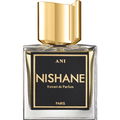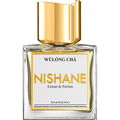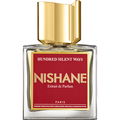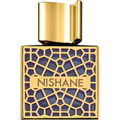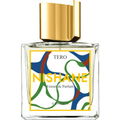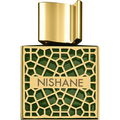06/14/2025

DAVID043329
38 Reviews

DAVID043329
Helpful Review
5
Leaves to be Desired
So as you have probably read in the "Interesting Facts" box, Karagöz is actually a character from traditional Turkish shadow puppetry, alongside also tagging his sharp-witted counterpart Hacivat. Together, they seem to form one of the most iconic Middle Eastern and Balkan theater traditions.
In short, Karagöz is a simple, uneducated, working-class man, often portrayed as impulsive, emotional, and literal-minded - but also full of earthy wisdom and street smarts. This contrasts Hacivat's character, who is educated, articulate, and pretentious. Their banter drives the humor and social commentary of the plays, which were popular from the 16th century onward, particularly during Ramadan evenings. The legend says that Karagöz and Hacivat were real people working on the construction of a mosque in Bursa during the 14th century. Their constant joking distracted the workers, causing delays. The sultan (said to be Orhan Gazi) allegedly had them executed, but later regretted it. A storyteller then recreated their personalities through puppetry to entertain and remember them.
Now, this doesn't necessarily relate in any way to the scents of both Karagoz and Hacivat (at least in my opinion). But I will say that Hacivat feels superior in every way. With Karagoz, I get an immediate green, fresh, medicinal odor from the herbs, accompanied by a juicy, bright pineapple and dark fruity grape which, to be honest, do not impress me in any way. Arguably, I find the green freshness from the herbs more interesting and pleasing than the fruity aspects of the scent.
The patchouli here isn't overly-strong, adding some muskiness and slight herbaceous sweetness, but not much earthiness. If anything, the neroli dominates as the fragrance dries down, with an intense blend of citrus and florals. The jasmine brings a smooth, but rather subdued white floral sweetness, with more emphasis on the muskiness. Which has me wondering, is it really muskiness that I'm getting or is it more of a synthetic scent? Either way, not impressed.
Once at the base, the vetiver brings some needed depth with a little bit of woody-earthiness. However, it could've been a little stronger, in my opinion. The amber envelops this with hints of sweetness and spiciness, as well as a faint resinous edge. As for the oud, there's not much to speak of. It's not the barnyardy, slightly fecal-smelling type of oud. If anything, if there's any oud to be sensed here, it's more of an woody with an earthy edge oud hidden somewhere well in the blend.
The longevity had me satisfied, even a little impressed I might add. I got a solid 8-9 hours, with okay projection for the first hour or so; about a foot and a half. Afterwards, it would settle down significantly closer, yet still mildly projecting, until around the four hour mark. By that point in time, all there was to be sensed is a mild fruity-sweetness and slight woodiness.
You shouldn't find Karagoz as a difficult scent to wear. It fits most occasions, and it certainly won't offend anyone. But it won't exactly make you stand out either, for there's nothing really special here apart from the opening, which is obviously short-lived.
"Simple" and "uneducated" seem to be the only attributes that both the character and perfume share, apart from the name. It's just a simple fruity fragrance, slightly green, musky, and even synthetic I would add. The vetiver and amber (and oud, I guess) at the base could've used an increase in intensity, although that's just my opinion, and overall the scent could very well be in designer territory. Hence, I also don't think it's worth the money, unless you're truly in love with it for whatever reason. But me, I think I'll stick with Hacivat.
Overall Rating: 6.6/10
In short, Karagöz is a simple, uneducated, working-class man, often portrayed as impulsive, emotional, and literal-minded - but also full of earthy wisdom and street smarts. This contrasts Hacivat's character, who is educated, articulate, and pretentious. Their banter drives the humor and social commentary of the plays, which were popular from the 16th century onward, particularly during Ramadan evenings. The legend says that Karagöz and Hacivat were real people working on the construction of a mosque in Bursa during the 14th century. Their constant joking distracted the workers, causing delays. The sultan (said to be Orhan Gazi) allegedly had them executed, but later regretted it. A storyteller then recreated their personalities through puppetry to entertain and remember them.
Now, this doesn't necessarily relate in any way to the scents of both Karagoz and Hacivat (at least in my opinion). But I will say that Hacivat feels superior in every way. With Karagoz, I get an immediate green, fresh, medicinal odor from the herbs, accompanied by a juicy, bright pineapple and dark fruity grape which, to be honest, do not impress me in any way. Arguably, I find the green freshness from the herbs more interesting and pleasing than the fruity aspects of the scent.
The patchouli here isn't overly-strong, adding some muskiness and slight herbaceous sweetness, but not much earthiness. If anything, the neroli dominates as the fragrance dries down, with an intense blend of citrus and florals. The jasmine brings a smooth, but rather subdued white floral sweetness, with more emphasis on the muskiness. Which has me wondering, is it really muskiness that I'm getting or is it more of a synthetic scent? Either way, not impressed.
Once at the base, the vetiver brings some needed depth with a little bit of woody-earthiness. However, it could've been a little stronger, in my opinion. The amber envelops this with hints of sweetness and spiciness, as well as a faint resinous edge. As for the oud, there's not much to speak of. It's not the barnyardy, slightly fecal-smelling type of oud. If anything, if there's any oud to be sensed here, it's more of an woody with an earthy edge oud hidden somewhere well in the blend.
The longevity had me satisfied, even a little impressed I might add. I got a solid 8-9 hours, with okay projection for the first hour or so; about a foot and a half. Afterwards, it would settle down significantly closer, yet still mildly projecting, until around the four hour mark. By that point in time, all there was to be sensed is a mild fruity-sweetness and slight woodiness.
You shouldn't find Karagoz as a difficult scent to wear. It fits most occasions, and it certainly won't offend anyone. But it won't exactly make you stand out either, for there's nothing really special here apart from the opening, which is obviously short-lived.
"Simple" and "uneducated" seem to be the only attributes that both the character and perfume share, apart from the name. It's just a simple fruity fragrance, slightly green, musky, and even synthetic I would add. The vetiver and amber (and oud, I guess) at the base could've used an increase in intensity, although that's just my opinion, and overall the scent could very well be in designer territory. Hence, I also don't think it's worth the money, unless you're truly in love with it for whatever reason. But me, I think I'll stick with Hacivat.
Overall Rating: 6.6/10





 Top Notes
Top Notes  Black grape
Black grape Herbs
Herbs Pineapple
Pineapple Heart Notes
Heart Notes  Jasmine
Jasmine Neroli
Neroli Patchouli
Patchouli Base Notes
Base Notes  Vetiver
Vetiver Amber
Amber Oud
Oud

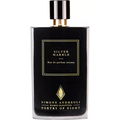











 DAVID043329
DAVID043329 Diyenli61
Diyenli61 Topfpflanze3
Topfpflanze3 Razvanyke
Razvanyke Sava
Sava JMWeed
JMWeed Emorandeira
Emorandeira Pized
Pized MariaS
MariaS FreshKatsu
FreshKatsu